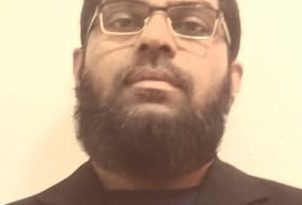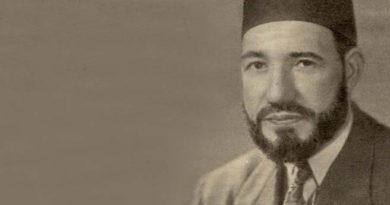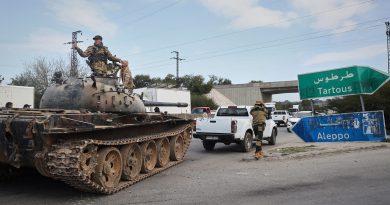“Has American Military Hardware failed in Saudi Arabia?”—Responding to the Critics
by Turki al-Owerde
Saudi Arabia and Israel have modern defense systems, yet they are threatened by terrorist groups with underdeveloped technology capabilities.
Questions like that seem to be fair but they’re not, this is a deliberate or non-deliberate failure of media outlets that express different ideologies rather than facts and technical outlook.
Still the big question for the Kingdom: Why did your defences fail after billions of dollars spent on American military hardware and how can you keep the world’s most profitable company – and biggest oil producer- safe? @CNBCi #OOTT #Iran #saudi #pompeo
— Hadley Gamble (@_HadleyGamble) September 18, 2019
Such questions send a negative message without considering characteristics of various defensive weapons, and suggest a complete failure and absolute loss of control, as well as an absurd message that defense systems are useless.
Well, I do not claim to be a military specialist, researcher or expert, I am an ordinary person analyzing the data I have before me to draw logical results.
Two basic things of this understanding:
- National security depends first on the military doctrine that’s emanating from the national doctrine, that depends on the unity of the national decision among various spectrums of society.
- Each country is part of a regional order, and thus the regional order is the second line of state military doctrine. And here we reach the third line of military doctrine: the regional order is a part of the international order.
Three layers of security systems. National, regional & international, which can be expressed in a safety net. Each country, including the superpowers, takes these three orders together into political, economic, military and security strategies.
The Middle East has been suffering since before the First World War, where the Ottoman Empire occupied large areas of the Middle East, followed by a similar European occupation.
Middle East was and remains a global conflict zone, in which the superpowers confronted until the time of the Prophet Muhammad (peace be upon him), when the Arabs overthrew the Roman & Persian empires. Only then, ME enjoyed independence & a relatively safe phase for centuries.
Since the dawn of the new international order and the emergence of the United Nations after World War II, the Middle East has been experiencing deep cultural problems used by the superpowers to prevent any possible real stability.
Whether this is directly planned or not, the participation of some great powers such as America, Europe and Russia is very clear in continuing instability.
This also means that some regional powers participated and still in instability, former & current Iranian regime, former & current Iraqi regime, Turkish regime, Syrian regime, Libyan former regime and Lebanese regime.
The stability of the regional system is a critical point in the national security of any state, and this is what most of the peoples of the region, which are mired in cold war ideological patterns, have not absorbed.
All security, defense systems will remain vulnerable, whatever their advanced technologies. Saudi Arabia and Israel have modern defense systems, yet they are threatened by terrorist groups with underdeveloped technology capabilities.
Remember the Cuban missile crisis and how it almost led to a third world war. It was because the Soviets had infiltrated the regional security system of the United States, and then no advanced technology would be useful.
Strategically, the Saudi defense system has succeeded in repelling 100s of Iranian terrorist attacks through the Houthi proxy, including 200 ballistic missiles, a remarkable success that is considered the best test for Patriot system.
For 40 years, Western powers and some regional powers have allowed and supported Iranian expansion by establishing anti-state terrorist groups in Lebanon first, then Iraq, Syria and Yemen.
The Iranian regime has been operating in Iraq since 2003 under full US cover, in Syria under full Russian cover since 2015, in Yemen under partial UN cover since 2015 despite a UN resolution supporting the Arab coalition.
In Yemen, there is a UN veto and American, British, French veto, and German opposition to end the Yemeni crisis. It is clear that the UN and these countries are blocking the chances to end the crisis.
Whenever there are opportunity for legitimate government and Arab coalition to resolve the crisis, immediate intervention shows up to impose meaningless negotiations to stop progress that can resolve the war and restore peace and stability.
Before the US and UK occupied Iraq, the regional order was more stable and secure, despite the constant threat of the Iranian regime. Iraq was completely contained by suffocating economic sanctions and no-fly zones, the peace process with Israel was moving in the right direction.
It was not enough. The famous lie of mass destruction weapons was fabricated then Iraq was completely destroyed.
Supporting Iranian and Turkish rise, Iraq-Iran war, occupation of Kuwait, occupation of Iraq, Arab Spring, Hezbollat, Houthis, Muslim Brotherhood, Khashoggi incident, ISIS. All of this has been used by superpowers to prevent any possible stability in the Middle East.
Mullahs are agents who carry out the agendas of great powers that allow them, what they should do or should not, to enable these great powers to achieve two primary goals.
- To impose absolute control of the Middle East in order to face the future confrontation with China.
- To fully secure Israel and give it the ability to expand as a permanent agent for the West.
At the end of the day, a question like this seems overwhelmingly passive, selective and naive.
Turki al-Owerde is an independent Political Analyst and Commentator. He tweets under @Turki_AlOwerde.
Disclaimer: Views expressed by writers in this section are their own and do not reflect Milli Chronicle’s point-of-view.



